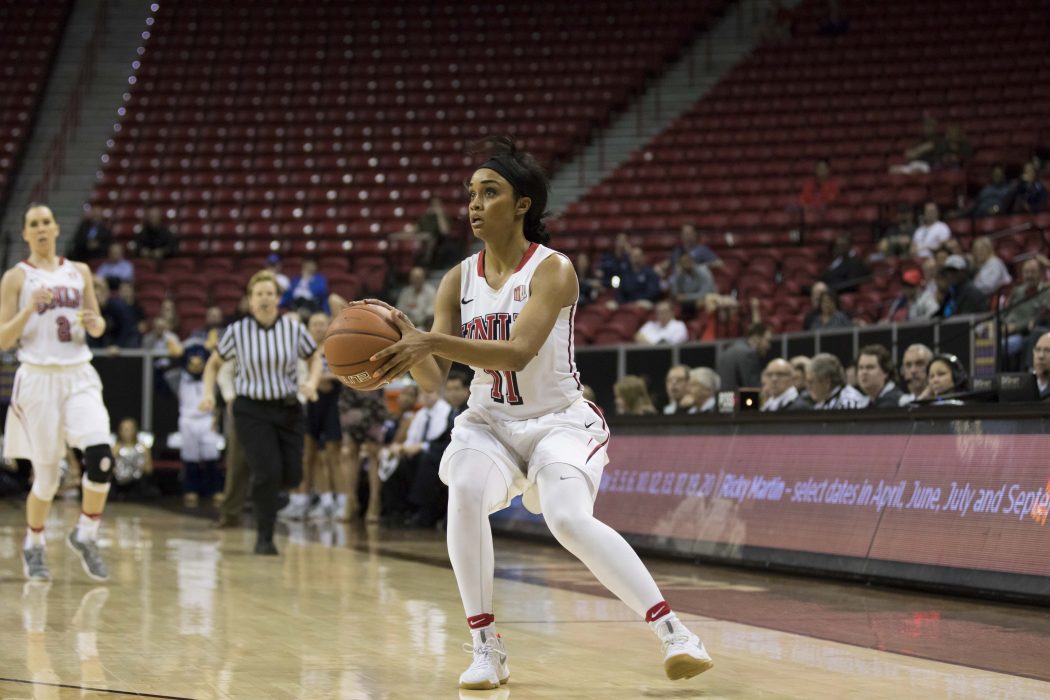Bad things happen in threes
Brooke Johnson started it.
An entire season of UNLV women’s hoops shaped the Aggies’ game plan — zone defense around the paint, slow it down to avoid transition buckets, force the Rebels to shoot their way out of trouble. It was a good formula that pushed UNLV to overtime back in January, and earned Utah State a nine-point win just last week.
So falling victim to UNLV’s widest margin of victory all season was a bit of a shock. The method by which the lady Rebels delivered their killing blow took the form of a starting unit tossing in 30-footers like they were playing pop-a-shot in an arcade with rims the size of hula-hoops.
Johnson blazed to a 4-5 start from distance all on her own, giving UNLV an early double-digit edge and causing viewers to wonder if the regression back down to below sea-level where the Rebels’ 3-point percentage typically resides would leave an opening for Utah State to creep back into contention. Instead, Dylan Gonzalez hit three from beyond the arc. Johnson added another. Forward Paris Strawther finished 4-5 from the floor, with fellow starter Dakota Gonzalez tallying 8-of-15. UNLV trounced the Aggies with 46 percent field goal shooting, 45 from three.
That’s a team that averages 28 percent from beyond the arc, playing offense like a team that should’ve lost even fewer than the six conference games it surrendered over the course of a successful 2017 campaign. Utah State’s typically robust 2-3 zone evaporated, torched by the hot hands of starters more seasoned and more locked-in than USU appeared at any point in the tournament.
Yes, the Rebels boast the advantage of playing at home, where it’s easier to play loose and confident. But a near-doubling in 3-point percentage casts the majority of blame on an Aggie squad that figured out too late how to push their defense out of the paint and into the faces of open shooters.
It was the performance of a young group experiencing growing pains — a team pegged to finish ninth, jumping instead to a solid middle-of-the-pack sixth place, and then lost its starting point guard to a broken hand before squaring up against a good Rebel team’s most complete effort of the season.
A blowout in the quarterfinals probably isn’t how coach Finkbeiner’s crew dreamt the season would end, but in context of a year full of close calls with a group that should remain almost entirely intact next year, maybe not the worst way to go down.

